Circular Economy - New Narrative
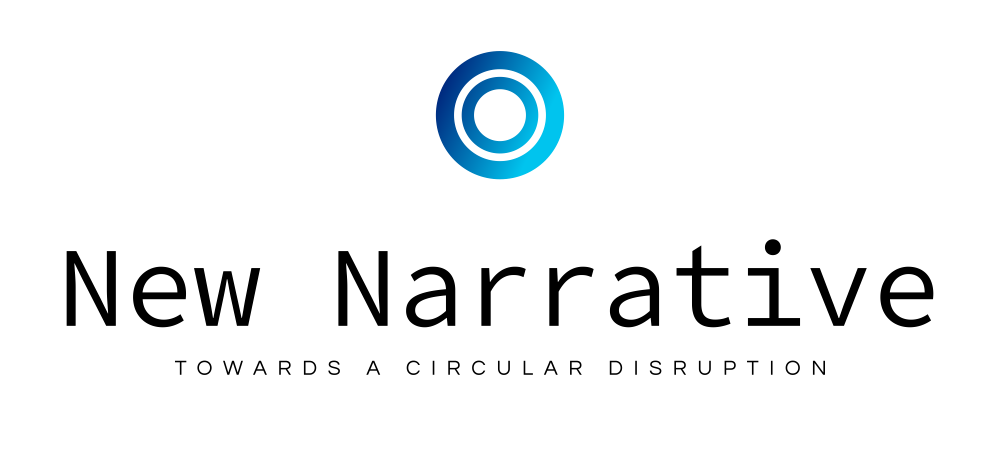
The circular economy is a highly popular topic but the transition towards it is a bumpy road. The global circularity level is even falling over time, with the amount of reused materials and resources decreasing from 9.1% in 2018 to 8.6% in 2020 (Circle Economy, 2020, 2018). It is a narrative that needs an update.
Startups
What should be changed to the narrative to reverse the downward trend? Part of the answer may come from circular start-ups, according to research conducted at Utrecht University. This research shows that startups can accelerate the transition towards a circular economy. They develop more ambitious circularity strategies, but they also face challenges. Collaborations between circular start-ups and established firms are paramount for tackling these challenges. Corporations and other actors in start-up ecosystems can help them scale up their operations.
Consortium
In order to get the transition going, Utrecht University started a collaboration with Circle Economy and ING bank. By generating cutting-edge knowledge and research on how system building of innovation ecosystems by circular start-ups can occur (and what may impede this), this consortium aims to accelerate transitions to a circular economy through circular start-ups. The next step is to set the right contextual conditions to unlock a new narrative for the circular economy.
Communication
The key insights of the research are shared through podcasts, video’s, webinars and a symposium. Information to be found on this website:
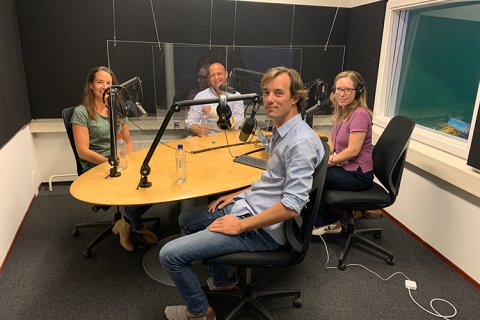
Media / food for thought
Podcasts
The circular economy is a popular topic amongst governments, scientists, entrepreneurs and investors. There is a lot of ‘discourse’ but unfortunately it doesn’t speed up. In this three part podcast series we will discuss what needs to be done to get things really going! What and who do we need to accelerate the transition?
- Episode 1: macro-economic hurdles and solutions for a faster growth of the circular economy
Listen on Spotify
Listen on Soundcloud - Episode 2: solving the challenges for circular startups
Listen on Spotify
Listen on Soundcloud - Episode 3: building a circular future through imagination
Listen on Spotify
Listen on Soundcloud
Videos
Would you like to know more about the insights of the New Narrative consortium members? In these short videos you will learn more about that. And if you, after watching the videos, want to dive deeper into their knowledge, you can take a further read from the papers below. For an overview of all New Narrative videos, take a look at the playlist on the Geosciences YouTube channel. All videos will be live from April 2021.
In many people’s minds, resource scarcity is the main reason to become more circular. However, most resources are not scarce nowadays. Only for a limited amount of minerals, scarcity seems to be a real issue. So, if it’s not about scarcity, why should we become more circular? Speaker: Mirjam Bani, ING.
Why is it so important to discuss the barriers to the circular economy? It may feel a bit pessimistic. However, facing these challenges is actually needed to bring the circular economy further. Speaker: Mirjam Bani, ING.
Circular business models may carry certain blind spots. What are those blind spots and how can we solve them? Speaker: Natalia Papu, Circle Economy.
Cooperatives can be one important part to speed up the circular transition. Cooperatives are nothing new, it is a proven concept and it can help the circular economy.
The biggest share of start-ups in the circular economy landscape are design-based. This video will explain what that means for their business model.
What will a circular economy and society look like in the future? Research of The Copernicus Institute of Sustainable Development imagined different plausible scenarios that can guide society for advancing a circular economy. This video is about scenario 1: ‘Circular Modernism’.
This video is about scenario 2: ‘Planned Circularity’.
This video is about scenario 3: ‘Bottom-Up Sufficiency’.
This video is about scenario 4: ‘Peer-to-peer Circularity’.
In what way can philosophy help get the circular economy going? This video will explain what philosophy tells us about our personal motivation to make the circular economy happen by using the case of the Plastics Challenge.
In what way can philosophy help get the circular economy going and meet the Plastics Challenge? This video will explain why it is so difficult to continuously act sustainable and why understanding motivational obstacles can help with drafting institutional policies.
In what way can philosophy help, when the burdens to get to a circular economy, become heavier than anticipated? This video will explain how you can solve these problems.
The research project Circular Economy – New Narrative is initiated by Utrecht University, which partnered up with ING bank and Circle Economy. In this interview UU senior researcher Thomas Bauwens explains why they started this project.
Utrecht University has studied the business models of over one hundred and fifty circular startups in the Netherlands and abroad. Startups are key to the circular economy, the researchers found out. But why? UU senior researcher Thomas Bauwens explains why.
The product-as-a-service business model is promising for the circular economy. What hurdles do they encounter and how can you make such a business into a success? Watch the interview with Mud Jeans CEO and Founder Bert van So about how he made his startup a success.
What happens when an organisation is owned and controlled by the people who use the products or services that specific business produces? According to Circle Economy, a coopertive can be very beneficial for the circular economy. Let’s see what Marvin Nusseck from Circle Economy found out.
Circle Economy’s study case for the report on cooperatives was Intelligent Food. IntelligentFood provides an alternative for food companies that have residual food resources due to surpluses and leftovers in the production process. Founder Junion Hanenberg explains why he chose this organisational form and how its members get stronger together.
Financing a circular startup is different and quite challenging. Why isn’t it common good, what is holding us back? ING Economist Mirjam Bani researched why. She will share her most important findings and investment manager at Pymwymic Monique Meulemans will explain what opportunities she sees in investing in circular businesses.
The road towards a circular economy is a bumpy one. What can we do in order to make the road less bumpy? This and more topics will be discussed by the panel consisting of chief Economist at ING, Marieke Blom; head of the Copernicus Institute of Sustainable Development at Utrecht University, Marko Hekkert; head of Production at Circle Economy, Ivonne Bojoh.
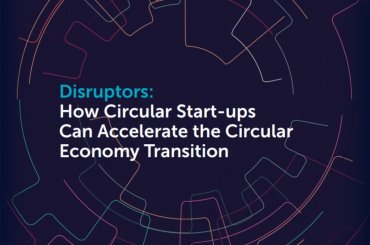
Disruptors: how circular start-ups can accelerate the circular economy transition
Written by Thomas Bauwens, Julian Kirchherr, Marko Hekkert, in partnership with ING, Circle Economy.
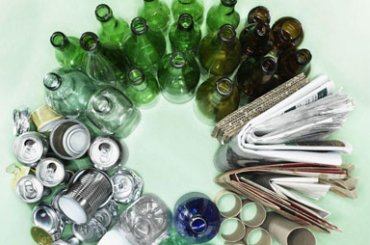
Circular futures: What Will They Look Like?
Written by Thomas Bauwens, Marko Hekkert, Julian Kirchherr.
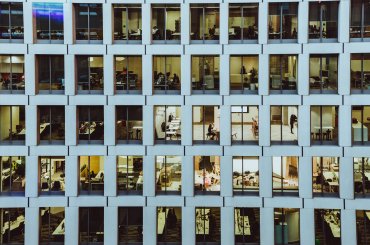
A typology of circular start-ups: An Analysis of 128 circular business models.
Written by Marvin Henry, Thomas Bauwens, Marko Hekkert, Julian Kirchherr.
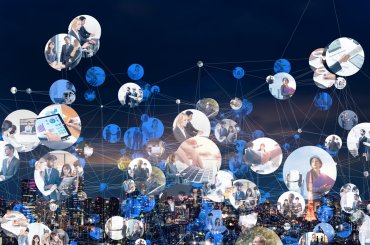
Work in progress: What is needed to launch a circular disruption?
With circular economy stagnating, it is time for a circular disruption. To explore this topic, a workshop was organized with leading circular economy researchers worldwide last late December, gathering leading circular economy scholars. Expected date of publication: February 2021.
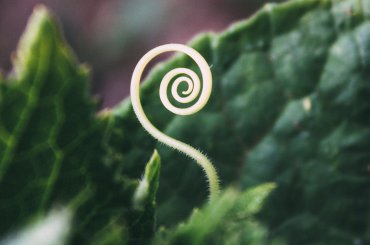
Rethinking the road to the circular economy
Out with the old throwaway society, in with the new circular economy. Transitioning to a new model is itself fraught with challenges. In this report, ING looks at what they are and what could help to overcome them.
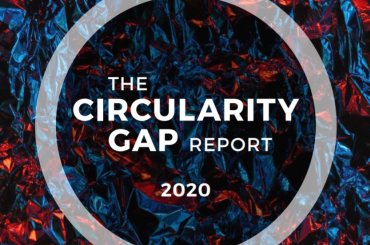
The Circularity Gap Report
The Circularity Gap Report provides insights into the circular state of the world and additionally focuses on specific aspects of circularity.
About the consortium members
The Faculty of Geosciences at Utrecht University studies the Earth: from the Earth's core to its surface, including man's spatial and material utilisation of the Earth – always with a focus on sustainability and innovation. Please click on the link for more information on the Faculty of Geosciences.
ING Sustainable Finance Wholesale Banking. Climate change is one of the biggest challenges of our time. Innovation, change and sustainability go hand-in-hand and offer strong business opportunities in order to tackle these challenges. As a financial institution, ING can play a role by financing change, sharing knowledge and using our influence. Please click on the link for more information on ING sustainable finance.
Circle Economy is an impact organisation that connects and empowers a global community to create the conditions for systemic transformation towards a circular economy. Please click on the link for more information on Circle Economy.
Contact
For more information and enquiries concerning research, please contact Thomas Bauwens or Julian Kirchherr. For general enquiries, please contact Marike Schols.
dr. Julian Kirchherr
Assistant Professor


